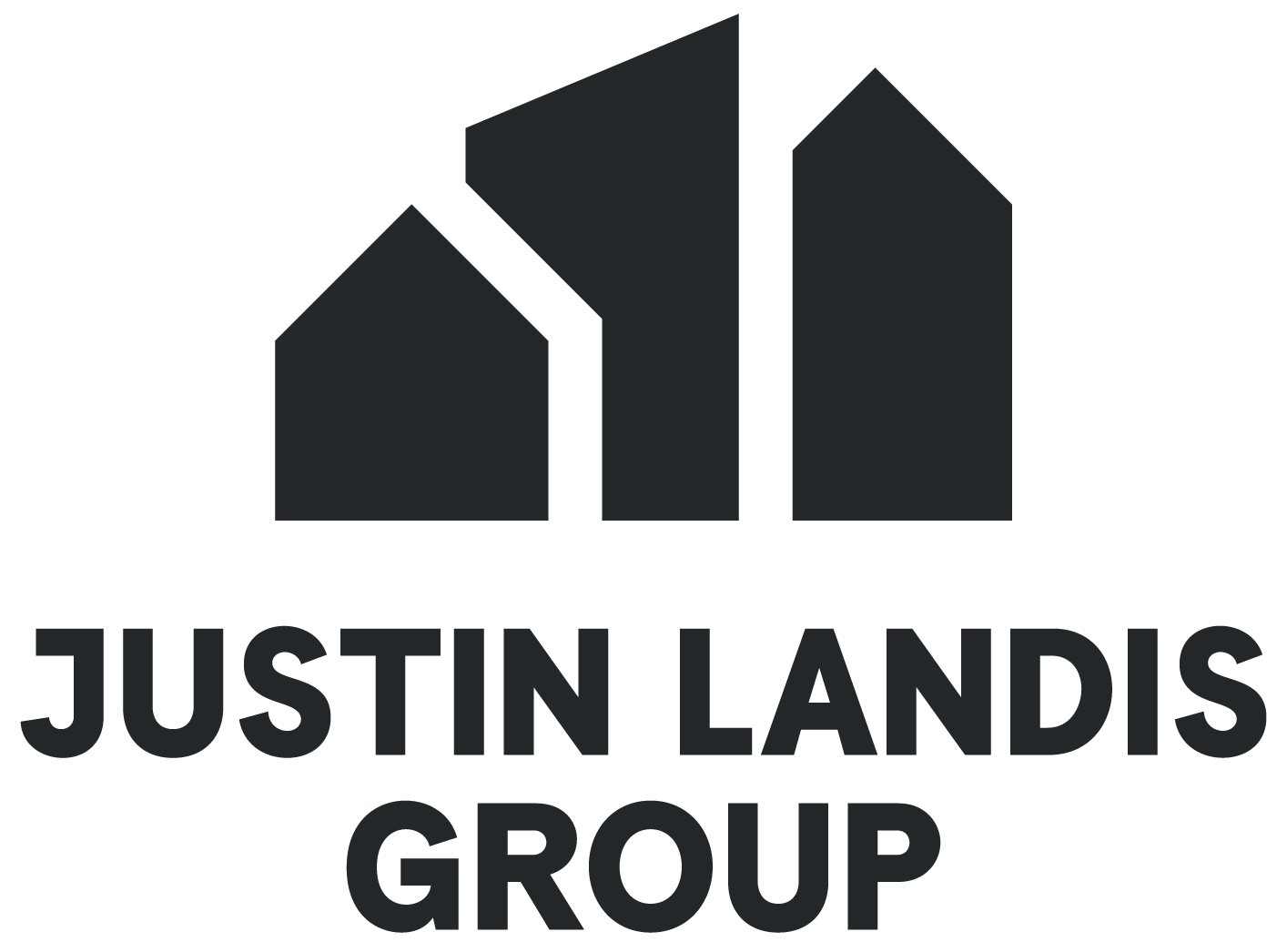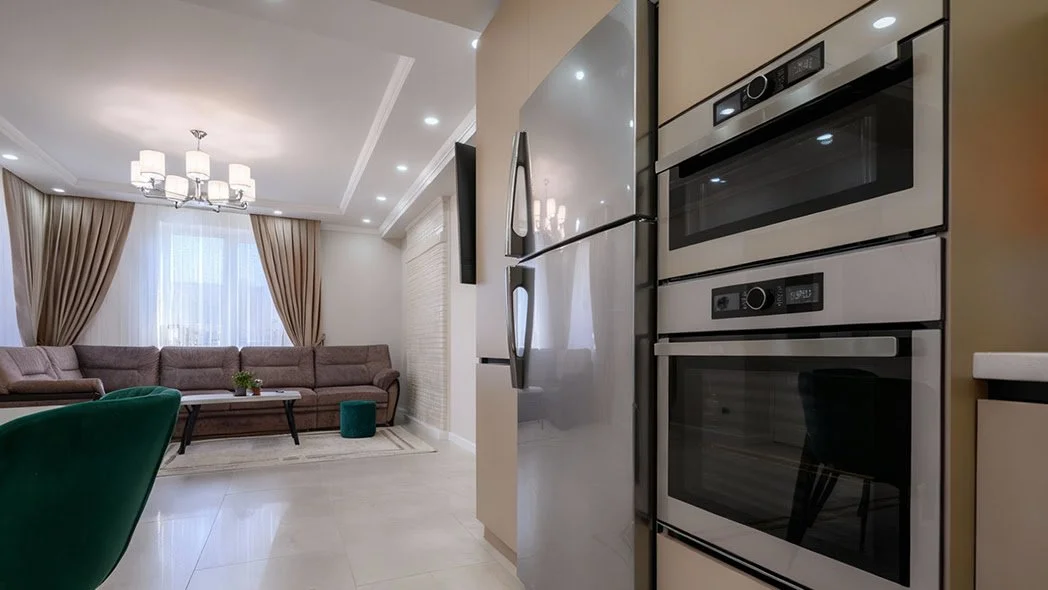How Much Can Atlanta Sellers Offer in Concessions?
Concessions take some thinking for Atlanta sellers to work through. Each loan type has its own federal limits that have to be respected, and what works in one neighborhood could be all wrong for another area of the city. Offer too much and you'll probably regret it later. Offer too little and your home could sit on the market as similar properties around you get scooped up!
The wrong call on concessions can cost you money. Offer too much and you could wind up handing over thousands of dollars that didn't need to leave your pocket. Go too conservative in a competitive neighborhood, and your listing will sit there as homes just like yours are selling in a matter of weeks.
Concessions can work for you if you use them right - they'll either speed up your sale or put more money in your pocket at the closing. I'm going to break down the limits for conventional, FHA, VA and USDA loans. Then we'll get into how to use them in a way that makes sense for your neighborhood and the time of the year that you're selling. The best strategy is to think of concessions as a tool - not something that you throw in just because you're desperate to close.
Let's talk about the seller concession limits so you can see what's possible!
What You Can Pay with Different Loans
The amount you're allowed to contribute toward the buyer concessions isn't a fixed number - it changes quite a bit based on what type of loan your buyer uses. Conventional loans will let you pay anywhere from 3% to 9% of the sale price, and where you land in that range depends on the size of the buyer's down payment. There's a cap on what you can chip in to help them out when a buyer has a smaller down payment.
FHA loans allow sellers to contribute as much as 6% of the sale price toward the closing costs. VA loans are capped a bit lower at 4%. USDA loans also allow as much as 6%, the same as the FHA limit. Lenders put these limits in place because they want buyers to have some skin in the game. When a buyer puts more of their own cash into the deal, they're much less likely to default on the loan or walk away from the property down the line.
Real numbers can help to make sense of all this. On a $400,000 sale of your Atlanta home to a buyer who uses an FHA loan, the most you can pay in concessions would be $24,000, which equals 6% of the sale price. You can't go above that number, no matter how much you'd like to help the buyer cover more of their costs.
The down payment percentage matters quite a bit with conventional loans because it determines how much you can contribute in concessions. When a buyer puts down less than 10%, you're stuck at just 3%. Buyers who put down between 10% and 25% will let you contribute as much as 6%. Once the down payment hits 25% or more, you can put up as much as 9%.
Make sure you know which type of loan your buyer plans to use before you ever agree to any concession amount. Your agent should be asking about this early on in the negotiations. Having this information from the start lets you stay within the legal limits and keep your deal from falling apart later on.
Popular Seller Concession Options in Atlanta
Sellers can put their concession dollars toward a few different options that help buyers at the closing table, and it pays to know your options before any offer or counteroffer. Most sellers will agree to cover the closing costs, and it's the most common pick because it's usually the biggest expense for buyers outside of their down payment. Closing costs run between $8,000 and $12,000 in metro Atlanta, depending on the sale price and the loan type, so we're not talking about small amounts here.
Home warranties are another popular option that buyers like to ask for. These usually cost between $400 and $800, and they help buyers feel more comfortable in their first year in the home. Sellers can also put money toward repair credits if the inspection turns up some problems that need to be fixed before the closing. Plenty of sellers actually like to give repair credits instead of taking care of the repairs themselves, and this happens in most negotiations. Buyers choose their own contractors and take care of the work on their own schedule, and this tends to work out better for everyone involved. If sellers prepay the first few months of the dues, it gives buyers a little extra breathing room as they move in and adjust to everything.
Plenty of Atlanta sellers don't know that they can use concession money to prepay the buyer's first year of property taxes or their homeowner's insurance. For buyers who are already maxed out between their down payment and moving costs, it can help quite a bit with their budget. Buyers have one less big bill to worry about during that first year of homeownership. Most loan programs allow this type of arrangement.
Concessions aren't set in stone, and that's helpful for everyone involved. Buyers and sellers can pick and choose different combinations to create whatever arrangement works best for their particular deal and situation!
How Your Atlanta Area Affects Concessions
The neighborhood where you list your home in Atlanta changes what buyers expect from you. Atlanta has dozens of neighborhoods, and each one comes with its own expectations and buyer behaviors.
Buckhead and Virginia-Highland show this well. Sellers in these neighborhoods almost never have to sweeten the deal to close. Homes sell fast, and buyers already know what they're signing up for - it's a hot market, and they accept that right from the start. You can list it at full price and wait for them to come in.
Head south into areas like South Fulton or the outer parts of Gwinnett County, and the dynamic changes quite a bit. Sellers in these neighborhoods usually need to budget between 3% to 4% in concessions if they want to stay competitive. Buyers have a lot more options to choose from down here, and they know that it gives them the upper hand.
East Atlanta works a bit differently. The neighborhood has lots of investors who flip homes and resell them pretty fast. Over time, this has created a market where most buyers usually expect sellers to cover their closing costs. It's just become the standard way that deals get done in that area.
The Beltline has changed seller concessions in different parts of the city. Houses close to the trail usually sell with lower concessions than similar homes located just 1 or 2 miles away. MARTA stations create the same effect on home negotiations. Buyers are willing to pay more and request lower concessions when they can ditch their car for everyday errands and for their commute.
The distance from these amenities matters for your negotiating position. A home 2 blocks from a MARTA stop might not need any concessions at all, and an identical house that's a 15-minute drive away could probably need to give 2% or more in buyer incentives to get the same level of interest.
The neighborhood you're selling in and what buyers care about most in that area are going to give you a much better sense of concession expectations than a citywide average ever will.
When Should You Use Your Concessions?
The time of year you pick to sell your home affects how much you'll pay toward the buyer's closing costs. Atlanta's spring market runs from March through May, and this window brings out the most active buyers. Homes move faster during these months, so you can usually get away with contributing less toward the closing costs. Competition from buyers is stronger in the spring, and most of them won't be motivated to ask for extras or concessions. August is when the market starts to slow down, and winter slows down even more. Fewer buyers are out looking during this time, so you might need to give more financial help to get buyers interested and close the deal.
Most sellers will hold off on giving any closing cost help when they first list their home. While these concessions can come into play later on when you're going back and forth with a buyer, or maybe after the inspection shows a few problems that need some attention. Keeping them in your back pocket gives you room to maneuver once the conversation gets going, and it means you're not locking yourself into any financial assistance too early.
After your home has been on the market for about a month without much activity, it makes sense to give concessions rather than drop your asking price. Price cuts usually reset what buyers expect to pay - drop your price by $5,000, and buyers will lock onto that lower number when they submit their bids. Keeping your price where it sits and putting $5,000 toward the closing costs instead usually means you'll walk away with more money when the deal closes. That gets the market moving again and creates interest without permanently lowering your sale price.
How long homes stay on the market in your area says quite a bit about what buyers want from sellers. When houses in your neighborhood are selling fast, you can probably skip the closing cost help or just throw in a little bit. When houses sit around longer before they go under contract, you might need to sweeten the deal with more generous incentives to get buyers interested and ready to move forward.
Smart Ways to Sweeten the Deal
Standard seller concessions work well, and they're a solid option. A little creativity with how you set up that contribution can make a much bigger difference on the deal.
Items that are left behind can help when you close a deal, and big items that would cost a fortune to move anyway work particularly well. A Sub-Zero fridge or a high-end washer and dryer set could be just what pushes a buyer to choose your place over another. Most buyers love to move into a home where premium appliances are already there and ready to go.
One more option that can help out a lot of buyers is to prepay their first year of HOA fees. Covering those fees ahead of time removes one more monthly expense that they'd have to pay during their first year of homeownership (which can already be pretty stressful). Buyers love this benefit because it's money that they'd have to pay out of pocket each month anyway.
A little bit of psychology explains why these strategies work. Buyers will place a much higher value on extras like rate buydowns than they would on the same dollar amount applied to closing costs. A $6,000 rate buydown seems like it's going to save them money for years, maybe even tens of thousands of dollars over the life of the loan. That same $6,000 toward closing costs just vanishes into the paperwork, and it gets forgotten about the second the deal closes.
These alternatives can also work well for you with contribution limits. Usually, they won't count against the standard concession caps the way that direct financial assistance would. This changes based on the loan type and what your lender will allow. But it might give you more flexibility to sweeten the deal without bumping into the restrictions that normally cap traditional seller concessions.
Tax and Legal Rules for Georgia Sellers
A few technical details about concessions in Atlanta can be a pain for sellers, and most of the problems come from documentation and legal compliance requirements. Capital gains calculations deserve some attention when tax season comes around. Concessions actually lower your net proceeds from the sale, and that means they can lower your tax bill if you're close to a threshold - and this gets especially relevant when you're working with bigger amounts.
Georgia has some pretty strict requirements around concessions that you'll have to know about before you sign anything. Every concession has to be written directly into the sale contract itself. Side agreements aren't going to work, and you definitely can't take care of these payments under the table or off to the side. If sellers don't document their concessions, they'd face mortgage fraud charges. Metro Atlanta has had cases where buyers and sellers wound up in some big legal problems just because they didn't follow the documentation requirements correctly.
Another common mistake is when sellers try to inflate the sale price to cover whatever concessions they've promised to the buyer. This tends to backfire once the appraisal comes back. If the home doesn't appraise at that inflated number, the entire deal can fall apart. Lenders won't approve any loan amount that exceeds the appraised value, and that means the buyer can't move forward even if everyone involved wants to make it work.
One more big detail I want to mention - Georgia law does allow sellers to cover a buyer's closing costs. This happens all of the time in transactions throughout the state, and it's legal. The line is drawn at the down payment, though. Sellers can't contribute anything toward that part of the buy, and a lot of sellers don't know that this restriction exists until after they've already promised to help with it.
The documentation and compliance parts are just as important as the final price that gets negotiated.
Moving to Atlanta?
The biggest win for sellers in Atlanta is to stop seeing concessions as money vanishing from your pocket. Think of them as a good idea that helps your home sell faster. As long as you stay within the limits for each loan type and make solid decisions based on what actually makes sense for your neighborhood and market, you'll give your property a competitive edge over the other homes that are for sale.
Traditional closing cost assistance works for plenty of sellers, and some of the more creative options can be just as helpful (rate buydowns and home warranties are solid picks). Your success depends on how well you understand what the buyers in your particular neighborhood actually want. Different areas draw in different types of buyers - some get excited about lower monthly payments, and others care more about the amount of cash they need at closing. Structure your concessions around what your buyers care about most, and you'll have a listing that generates multiple bids instead of one that sits around week after week in Atlanta's competitive market.
Local help from someone who knows the area matters when you're figuring out which part of town is the right fit. If you're thinking about making a move to this lively city, Atlanta's got neighborhoods with different personalities and the best way to get a feel for what makes this city tick is to work with a local who can take you around and knows it well. Maybe you want a quiet home in the suburbs, or maybe you'd rather be right in the middle of the action - in either case, our team at the Justin Landis Group can help match you with the right property for your lifestyle.
Contact the Justin Landis Group, and we'll help you find your dream home.








